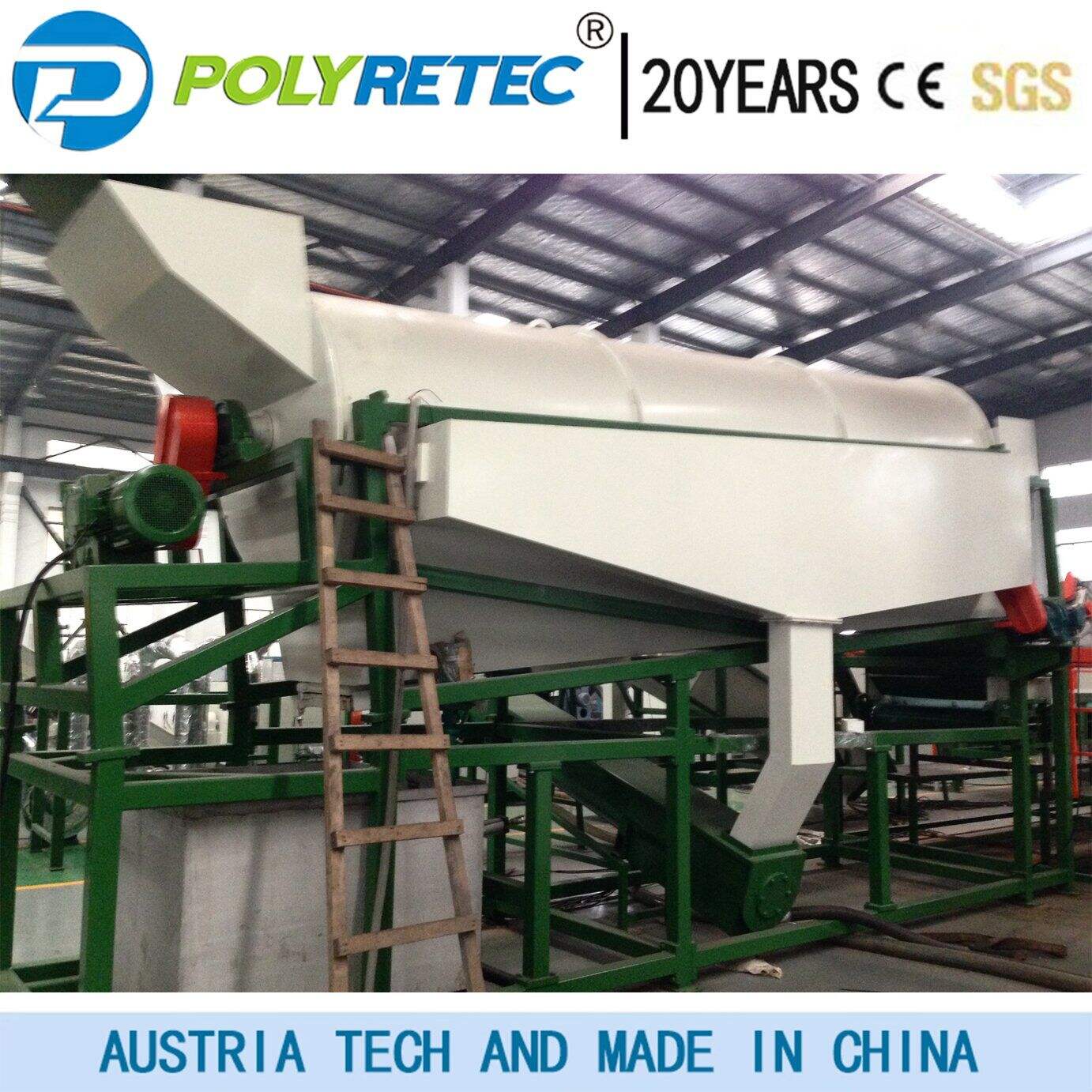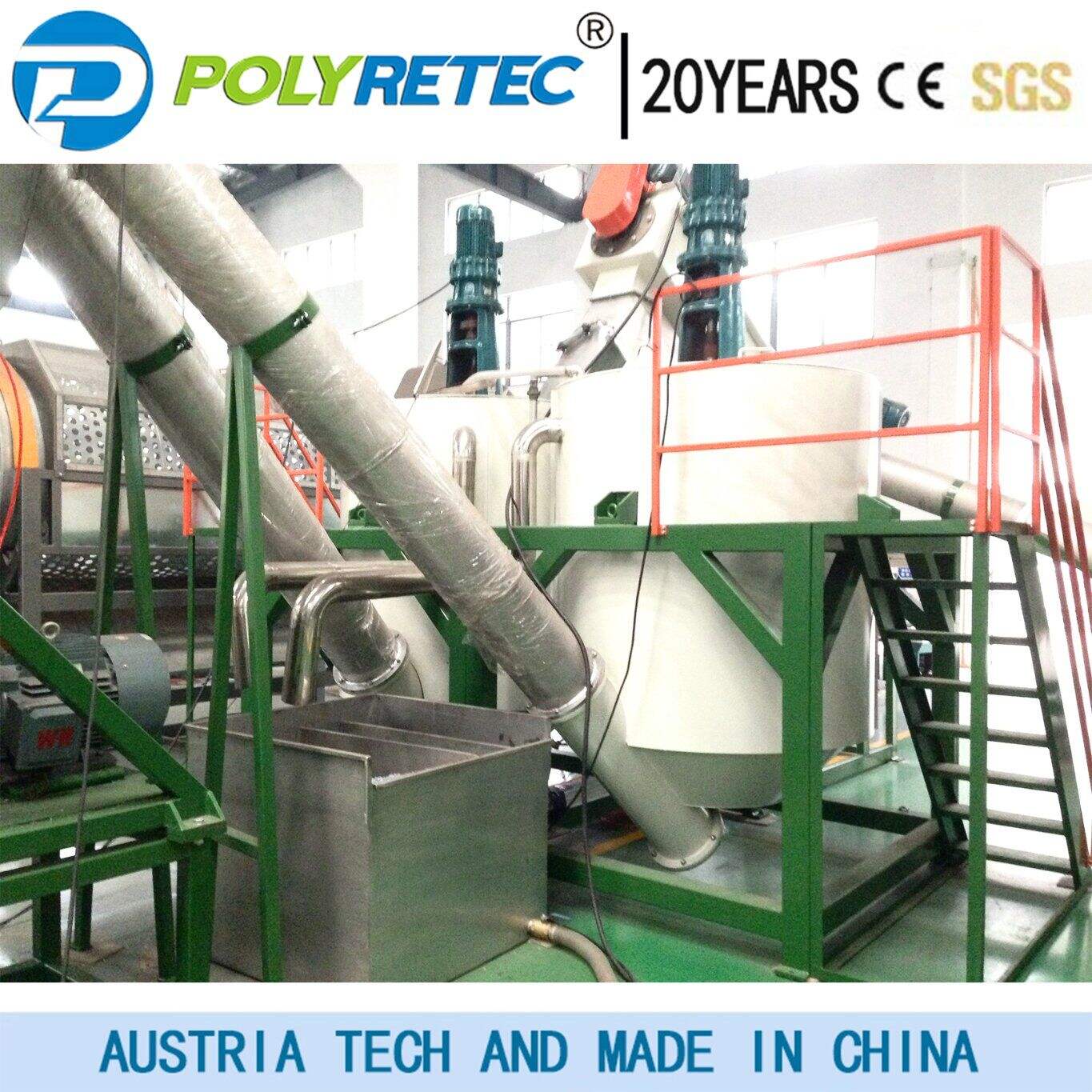The global push toward sustainable manufacturing has elevated the importance of advanced recycling technologies across industries. PET recycling machines represent a cornerstone of modern circular economy initiatives, transforming post-consumer plastic waste into valuable raw materials for new production cycles. These sophisticated systems not only address environmental challenges but also deliver substantial economic and operational advantages for businesses committed to sustainable practices. Understanding the comprehensive benefits of these recycling solutions helps organizations make informed decisions about their long-term sustainability investments and operational strategies.
Environmental Impact and Sustainability Advantages
Reduction of Plastic Waste in Landfills
PET recycling machines significantly contribute to diverting millions of tons of plastic waste from landfills annually. These advanced systems process discarded bottles, containers, and packaging materials that would otherwise occupy valuable landfill space for centuries. By converting waste PET into reusable materials, recycling facilities reduce the environmental burden on waste management infrastructure while preserving natural landscapes from contamination.
The mechanical and chemical processing capabilities of modern recycling equipment ensure that even contaminated or degraded PET materials can be restored to near-virgin quality. This comprehensive waste diversion strategy helps municipalities and waste management companies achieve their sustainability targets while reducing long-term disposal costs associated with landfill operations and maintenance.
Carbon Footprint Reduction Through Energy Efficiency
Advanced recycling technologies demonstrate remarkable energy efficiency compared to traditional virgin plastic production methods. Manufacturing new PET from recycled materials requires approximately 60% less energy than producing virgin plastic from petroleum-based feedstock. This energy reduction translates directly into lower greenhouse gas emissions and reduced dependence on fossil fuel resources.
Modern PET recycling machines incorporate heat recovery systems, optimized motor controls, and intelligent processing algorithms that further minimize energy consumption throughout the recycling process. These technological improvements enable facilities to process larger volumes of material while maintaining lower overall energy costs and environmental impact per unit of recycled output.

Economic Benefits and Cost Savings
Long-Term Operating Cost Advantages
Investing in high-quality recycling equipment delivers substantial operational savings over extended periods. While initial capital investment may be significant, the reduction in raw material costs, waste disposal fees, and regulatory compliance expenses creates positive return on investment within 3-5 years for most commercial operations. These savings compound annually as material volumes increase and operational efficiency improves.
Additionally, PET recycling machines reduce dependency on volatile raw material markets by creating internal supply chains from waste streams. This supply chain independence provides price stability and procurement security that becomes increasingly valuable during market fluctuations or supply chain disruptions.
Revenue Generation Through Recycled Material Sales
High-quality recycled PET materials command premium prices in manufacturing markets due to increasing demand from brands committed to sustainable packaging solutions. Recycling facilities can establish long-term contracts with manufacturers seeking reliable supplies of recycled content for their products. This creates predictable revenue streams that improve overall business stability and profitability.
The quality consistency achieved by modern recycling equipment enables facilities to meet stringent specifications for food-grade packaging applications. This capability opens access to higher-value market segments where recycled PET can command prices approaching those of virgin materials while delivering superior environmental credentials.
Technological Advancement and Operational Efficiency
Process Automation and Quality Control
Contemporary recycling systems integrate sophisticated automation technologies that minimize manual intervention while maximizing throughput consistency. Advanced sorting mechanisms, optical recognition systems, and automated contamination removal ensure that processed materials meet strict quality standards without extensive manual oversight. This automation reduces labor costs while improving workplace safety and operational reliability.
Real-time monitoring systems provide continuous feedback on processing parameters, enabling operators to optimize performance and identify maintenance needs before equipment failures occur. These predictive maintenance capabilities reduce downtime costs and extend equipment service life, contributing to improved overall return on investment for recycling operations.
Scalability and Production Flexibility
Modern recycling equipment designs accommodate varying production volumes and material specifications through modular configurations and adjustable processing parameters. This flexibility enables facilities to adapt to changing market demands, seasonal variations in waste streams, or expansion opportunities without requiring complete equipment replacement or facility redesign.
Scalable systems allow businesses to start with smaller processing capacities and gradually expand operations as markets develop and waste collection networks mature. This graduated investment approach reduces financial risk while enabling organizations to capture market opportunities as they emerge in their operational regions.
Regulatory Compliance and Market Position
Meeting Environmental Regulations and Standards
Regulatory frameworks worldwide increasingly mandate recycled content requirements and extended producer responsibility programs. Organizations operating advanced recycling facilities position themselves favorably for compliance with these evolving regulations while avoiding potential penalties or market access restrictions. Proactive investment in recycling capabilities demonstrates regulatory foresight that protects long-term business viability.
Quality management systems integrated into modern recycling equipment facilitate compliance documentation and certification processes required by regulatory agencies. Automated data collection and reporting capabilities streamline audit procedures and ensure consistent documentation of environmental performance metrics required for regulatory reporting.
Brand Enhancement and Corporate Social Responsibility
Companies implementing comprehensive recycling programs enhance their brand reputation and stakeholder relationships through demonstrated environmental stewardship. This positive brand association supports marketing initiatives, employee recruitment efforts, and customer loyalty programs that deliver measurable business value beyond direct operational savings.
Corporate sustainability reports highlighting recycling achievements provide competitive advantages in procurement processes where environmental performance influences vendor selection decisions. These reputational benefits compound over time as sustainability considerations become increasingly important in business relationships and market positioning strategies.
FAQ
How long does it take to see return on investment from PET recycling equipment?
Most commercial recycling operations achieve positive return on investment within 3-5 years, depending on processing volume, local material costs, and operational efficiency. Higher-volume facilities with established waste collection networks typically see faster payback periods, while smaller operations may require longer investment horizons to achieve profitability.
What maintenance requirements should be expected with industrial recycling machinery?
Modern recycling equipment requires regular preventive maintenance including lubrication, filter replacement, and component inspection typically scheduled monthly or quarterly. More extensive maintenance involving major component replacement or overhaul occurs annually or bi-annually depending on processing volume and material characteristics. Proper maintenance programs ensure optimal performance and extend equipment service life.
Can recycling equipment handle contaminated or mixed plastic waste streams?
Advanced recycling systems incorporate sophisticated sorting and cleaning technologies capable of processing contaminated materials and separating different plastic types. However, pre-sorting and contamination reduction improve processing efficiency and output quality. Investment in comprehensive waste preparation systems maximizes the value recovery from mixed waste streams.
What quality standards can be achieved with modern recycling technology?
Contemporary recycling equipment produces materials meeting food-grade specifications suitable for direct food contact applications when properly operated and maintained. Quality consistency approaches virgin material standards through advanced processing controls and contamination removal systems, enabling recycled content integration in demanding applications including beverage containers and food packaging.
Table of Contents
- Environmental Impact and Sustainability Advantages
- Economic Benefits and Cost Savings
- Technological Advancement and Operational Efficiency
- Regulatory Compliance and Market Position
-
FAQ
- How long does it take to see return on investment from PET recycling equipment?
- What maintenance requirements should be expected with industrial recycling machinery?
- Can recycling equipment handle contaminated or mixed plastic waste streams?
- What quality standards can be achieved with modern recycling technology?




